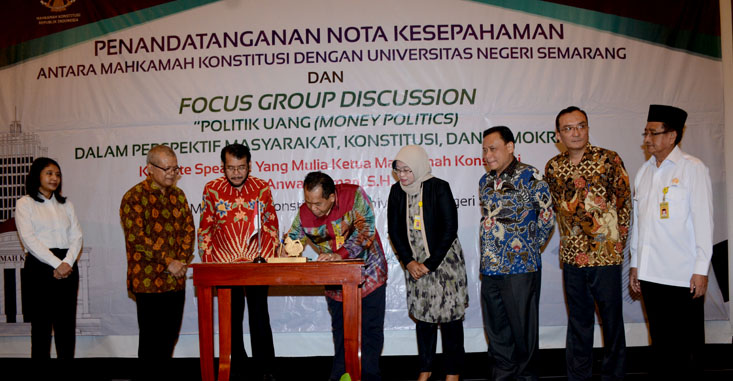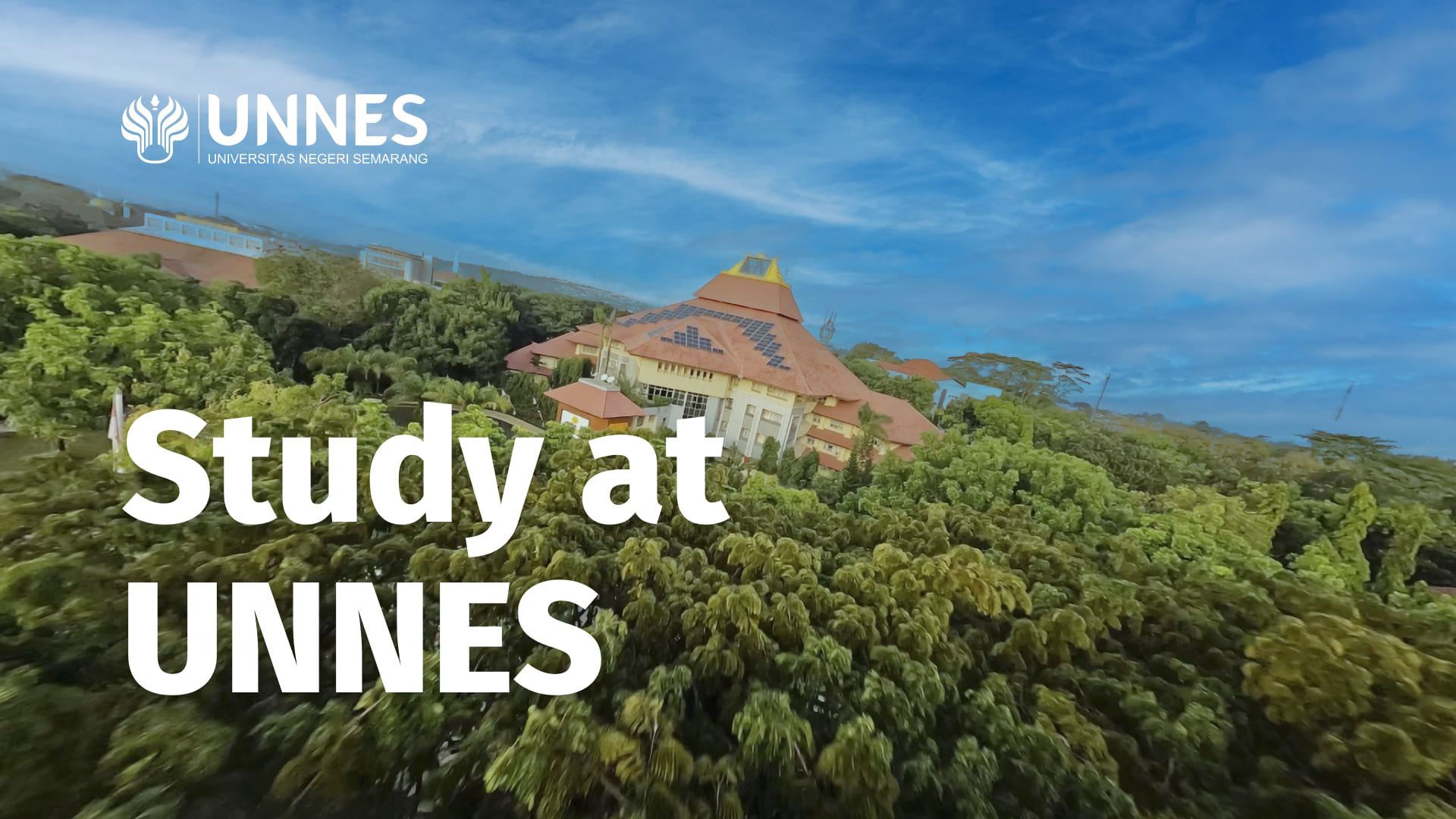
Constitutional Court of Indonesia (MK RI) and Universitas Negeri Semarang (UNNES) collaborated on Increasing the Understanding of Citizens’ Constitutional Rights and the Quality of Legal Higher Education, Friday (29/3) at Santika Hotel Semarang.
The memorandum of understanding was signed by the Secretary General of the Constitutional Court Prof Dr M Guntur Hamzah SH MH and Rector of UNNES Prof Dr Fathur Rokhman MHum. It was attended as well by the Chief Justice of the Constitutional Court of Indonesia Dr. Anwar Usman SH MH.
Based on consideration, both parties agreed to carry out cooperation in the framework of Increasing the Height of Law with the roles, functions and duties of their respective institutions.
The scope includes increasing understanding of the constitutional rights of citizens, improving the quality of legal higher education, and disseminating the decisions of the Constitutional Court.
Implementation of Increasing Understanding of Citizens’ Constitutional Rights includes the implementation of education and training in understanding the constitutional rights of citizens, the implementation of Pancasila education and the Constitution.
To Improve the Quality of Higher Education Law includes the development of legal and constitutional material, Constitutional Court procedural law, research, studies, seminars, public lectures, and the development of constitutional journals.
As for the dissemination of the Constitutional Court’s decision to hold the dissemination of the Constitutional Court Decision in order to improve the Understanding of citizens’ Constitutional Rights and the Quality of Higher Education Law.
The implementation of the first part is an increase in understanding of constitutional rights of citizens, the second part is to improve the quality of legal higher education and the third part to disseminate the decisions of the constitutional court.
Other provisions contained in article 10, namely the memorandum of understanding is valid for 5 (five years) starting from the date signed, the memorandum of understanding can be updated according to the needs based on the agreement of the parties, the memorandum of understanding can be terminated before the validity period as referred to in paragraph (1).
Mutiah Karim (Student Staff)
29
Mar

